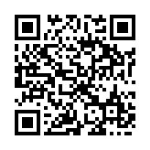從《動物農莊》轉化為兒童文學談起:動畫與中譯本分析(英文稿)
作者:賴維菁(國立臺北教育大學兒童英語教育學系副教授)
卷期:68卷第2期
日期:2023年9月
頁碼:125-145
DOI:https://doi.org/10.6210/JNTNU.202309_68(2).0005
摘要:
本研究旨在探討臺灣兒童文學的現有模板(existing models)。討論的文本涵蓋1954年英國的動畫《動物農莊》以及四部有注音符號的中譯本。當複雜的政治寓言變成適合兒童讀者/觀眾的作品,其中的改變即顯現兒童文學的特色,亦即顯露現有兒童文學模板的特色。本研究借用了三組理論,包含以Linda Hutcheon的電影改編理論詮釋改編的特性和社會歷史框架的重要性,帶出動畫的社會歷史框架的討論;以Itamar Evan-Zohar的多元系統理論詮釋文學多元系統的結構;將Zohar Shavit對於兒童文學翻譯的研究直接使用在中譯本的討論上。經由分析後發現,動畫與中譯本的共同性多於差異性,唯二顯著的差異就是兩者對於政治有不同的態度,以及因為媒介不同而產生表達方式的歧異。
關鍵詞:《動物農莊》、兒童文學、文學多元系統、給兒童的譯作
 《詳全文》
《詳全文》

參考文獻:
- Ariès, Philippe. Centuries of Childhood: A Social History of Family Life. Translated by Robert Baldick. New York, NY: Vintage Books, 1962.
- Cheng, Yu-hsin. “Translating Animal Farm for Children in Taiwan.” Master’s thesis, National Taiwan Normal University, 2009.
- Even-Zohar, Itamar. “Polysystem Theory.” Poetics Today 11, no. 1 (1990): 9-26.
- Even-Zohar, Itamar. “The ‘Literary System’.” Poetics Today 11, no. 1 (1990): 27-44.
- Even-Zohar, Itamar. “The Position of Translated Literature within the Literary Polysystem.” Poetics Today 11, no. 1 (1990): 45-51.
» 展開更多
- Ariès, Philippe. Centuries of Childhood: A Social History of Family Life. Translated by Robert Baldick. New York, NY: Vintage Books, 1962.
- Cheng, Yu-hsin. “Translating Animal Farm for Children in Taiwan.” Master’s thesis, National Taiwan Normal University, 2009.
- Even-Zohar, Itamar. “Polysystem Theory.” Poetics Today 11, no. 1 (1990): 9-26.
- Even-Zohar, Itamar. “The ‘Literary System’.” Poetics Today 11, no. 1 (1990): 27-44.
- Even-Zohar, Itamar. “The Position of Translated Literature within the Literary Polysystem.” Poetics Today 11, no. 1 (1990): 45-51.
- Halas, John, and Joy Batchelor, dir. Animal Farm. 1954; Taipei, Taiwan: Horng En Culture, 2008. DVD.
- Huang, Fuzao, adapted by Dongwu Nongzhuang [Animal Farm]. Illustrated by Huilan Lin. Taipei, Taiwan: Yusheng, 1998.
- Hutcheon, Linda. A Theory of Adaptation. New York, NY: Routledge, 2006.
- Jost, François. “The Look: From Film to Novel— An Essay in Comparative Narratology.” In A Companion to Literature and Film, edited by Robert Stam and Alessandra Raengo, 71-80. Malden, MA: Blackwell, 2004. https://doi.org/10.1002/9780470999127.ch5.
- Leab, Daniel J. “Animators and Animals: John Halas, Joy Batchelor, and George Orwell’s Animal Farm.” Historical Journal of Film, Radio and Television 25, no. 2 (2005): 231-249. https://doi.org/10.1080/01439680500138001.
- Lin, Zeming, adapted by Dongwu Nongzhuang [Animal Farm]. Illustrated by Wenyi Shen. Tainan, Taiwan: Guangtian, 2001.
- Lu, Xiangru, adapted by Dongwu Nongzhuang [Animal Farm]. Illustrated by Yunzi Ho. Taipei, Taiwan: Taiwan Dongfang, 1993.
- Mitchell, W. J. T. Picture Theory: Essay on Verbal and Visual Representation. Chicago, IL: The University of Chicago Press, 1994.
- Nodelman, Perry. The Pleasures of Children’s Literature. 2nd ed. New York, NY: Longman, 1996.
- Orwell, George. Animal Farm: A Fairy Story. London, UK: Plume, 2003.
- Orwell, George. “Freedom of the Press.” In Animal Farm: A Fairy Story, 97-107. Taipei, Taiwan: Bookman, 2000.
- Orwell, George. “Orwell’s Preface to the Ukrainian Edition of Animal Farm.” In Animal Farm: A Fairy Story, 108-113. Taipei, Taiwan: Bookman, 2000.
- Orwell, George. “Why I Write.” In A Collection of Essays, 315-320. Garden City, NY: Doubleday, 1954.
- Orwell, George. “You and the Atomic Bomb.” Tribune, October 19, 1954, https://www.orwell.ru/library/articles/ABomb/english/e_abomb.
- Shan, Te-hsing. “The Reception of George Orwell in Taiwan.” Concentric: Literary and Cultural Studies 40, no. 1 (2014): 97-125. https://doi.org/10.6240/concentric.lit.2014.40.1.06.
- Shavit, Zohar. “Translation of Children’s Literature as a Function of Its Position in the Literary Polysystem.” Poetics Today 2, no. 4 (1981): 171-179. https://doi.org/10.2307/1772495.
- Youfu Editorial Board, ed. Dongwu Nongzhuang [Animal Farm]. Taipei, Taiwan: Youfu, 2008.
Journal directory listing - Volume 68 (2023) - Journal of NTNU【68(2)】September
When Animal Farm Is Converted into Children’s Literature: An Animated Film and Four Chinese Translations in Taiwan
Author: Wei-Ching Lai (Department of Children English Education, National Taipei University of Education, Associate Professor)
Vol.&No.:Vol. 68, No. 2
Date:September 2023
Pages:125-145
DOI:https://doi.org/10.6210/JNTNU.202309_68(2).0005
Abstract:
This study explores the existing models of children’s literature. The texts examined are the 1954 British animated film adaptation of George Orwell’s Animal Farm, made by John Halas and Joy Batchelor, and four Chinese translations for children published in the 1990s and 2000s. For young audiences, complex political allegories must be modified to ensure that they are appropriate and understandable. These necessary changes highlight the features that distinguish children’s literature from adults’ and characterize the existing models of children’s literature. This study employs three theories to analyze the texts. Linda Hutcheon’s study on adaptation justifies the discussion of the socio-historical context of the animated film; Itamar Evan-Zohar’s polysystem theory is employed to discuss the basic structure of the literary polysystem, which connects the discussions of the animated film and the Chinese translations. Analysis of the translations and the animated film reveals their similar features; the two major differences are their political tendencies and modes of representation.
Keywords:Animal Farm, children’s literature, literary polysystem, translations for children